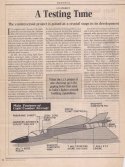There is nothing inherently problematic with operating both S-400 and F-35, these are political tokens and nothing more. Turkey was booted from the F-35 program because it defied the American empire by embracing Russian defence products over those of the United States or its European vassals, and had to be seen to bear the costs of that defiance.
Washington has sought for decades now to draw India into its geopolitical embrace in order to wield that nation as a club against China while selling into its (potentially) enormous market, creating enduring dependencies and therefore endless profits, an echo of Washington's motivations for its new approach to China in the 1970s, seeking to wield that nation against the Soviet Union. F-35 is a token in that gambit.
Turkey is a second-tier power that was straying from its relationship with Washington and had to be seen to bear the costs of that infidelity, while India is a (potential) great power that Washington is actively seeking to seduce. Different circumstances and objectives, different approaches.
The problem for Washington is that India's self-image as one of the world's great civilizations, coupled with its aversion to anything that recalls the intrusive paternalism of the British colonial era, effectively preclude her from assuming the vassalized role that Washington would like her to. Washington has been frustrated by India's refusal to bend the knee for as long as the Republic has existed and for many decades simply turned its back on the country in response, but it can no longer afford to do that. Hence the continued outreach through gritted teeth even as India walks all over what Washington would consider to be "red lines" for most other countries, such as India's economic engagement with Iran, its refusal to comply with western sanctions regime against Russia, etc. There is an understanding borne of experience that banging loudly on the table and threatening to arm-twist India will not produce the desired results. Russia and France are still reaping the benefits of not having imposed sanctions on India following the Pokhran II nuclear tests.
Those are the motivations, but they also illustrate the difficulties. Washington has to date only sold F-35 to nations that it "trusts", i.e. that are securely under its thumb; and Washington, very reasonably, does not trust India. The word "eventually" in Trump's statement is the giveaway here, and aligns with previous noises from Washington about the acquisition of an American aircraft for MMRCA/MRFA providing a roadmap to the eventual acquisition of F-35. The word "eventually" here does not refer to India's sclerotic bureaucratic apparatus, but to the political preconditions necessary for such a sale, and those are the sticking point. Trump and Modi can speak of their unbreakable friendship or whatever, but it is in the finer details -- encountering the India that preferred to downgrade communication suites in P-8I, C-130, etc. rather than sign the unacceptably intrusive CISMOA agreement -- that difficulties will inevitably emerge. There are powerful constituencies in Washington that have opposed providing India with first-rate technologies because they understand that India is not in their pocket and that even the most generous token is unlikely to put it there. Trump is a disruptive force that could theoretically ride roughshod over such concerns, but radical generosity would not appear to be in his nature.

